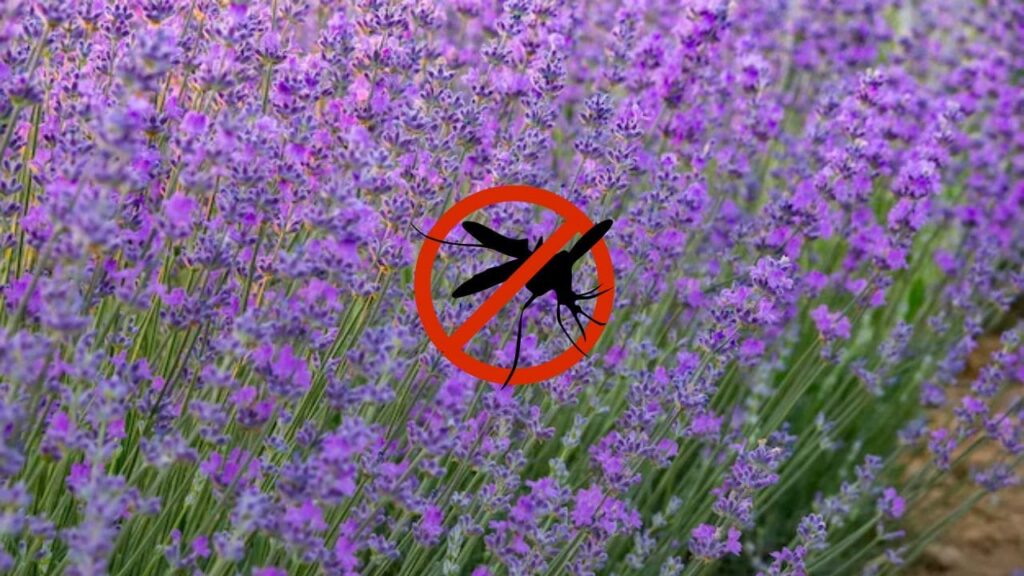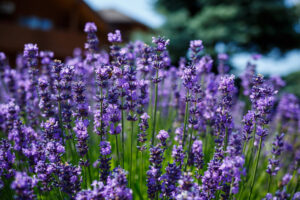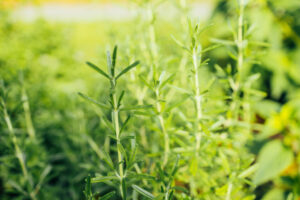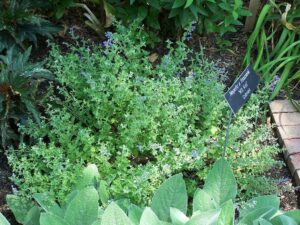CONTENTS

Natural Protection: Mosquito Repellent Plants for a Bug-Free Environment
Are you tired of pesky mosquitoes ruining your summer evenings? While many chemical repellents are available, some may be harmful to you and the environment. Fortunately, there is a natural solution: mosquito repellent plants.
In this blog post, we’ll discuss the different types of plants that you can easily grow in your garden or indoors and how they can help create a bug-free environment. Keep reading to know more!
Plants That Repel Mosquitos in Your Backyard
From lavender to eucalyptus, these plants will help you repel those naughty mosquitos in your backyard. Check them out!
Lavender

Lavender is a beautiful, fragrant plant that adds aesthetic appeal to your garden with its purple flowers and is a natural mosquito repellent. Mosquitoes are repelled by the strong scent of lavender oil, which is present in the plant’s leaves and flowers.
When planted in your backyard, lavender confuses mosquitoes, making locating their prey challenging. By doing so, it helps create a more pleasant outdoor environment, free from annoying mosquito bites.
In addition, the lavender plant also has calming and relaxing effects on humans, making it an excellent addition to your garden or home. The soothing aroma of lavender can promote a sense of well-being and help reduce stress.
To enhance your lavender experience, you can use lavender-infused body spray or essential oil. These products not only offer the benefits of lavender’s mosquito-repelling properties but also provide a refreshing and delightful fragrance for your body and living spaces.
You can easily grow lavender in containers or well-draining soil and place it in areas where you spend time outdoors, such as patios and porches. With the combination of lavender plants and body spray, you can create a serene and mosquito-free haven for yourself and your family to enjoy throughout the year.
Marigold

Marigolds contain a natural compound called pyrethrum, commonly used in commercial insect repellents.
When planted in your garden, marigolds emit a scent that mosquitoes find repulsive, keeping them at bay.
While marigolds are effective in repelling mosquitoes, they tend to only work within a couple of feet of the plant. Therefore, it’s best to plant them in areas where you spend time outdoors, such as near seating areas or walkways.
What’s best about them is that they’re easy to grow in various colors and sizes, making them a great addition to any garden.
Basil

Another plant that exudes mosquito-repellent scent and natural insecticidal properties is basil, an herb widely used in cooking and known for its distinctive aroma and flavor.
The essential oils found in basil, such as eucalyptol and citronellol, are known to repel mosquitoes and other insects. Mosquitoes are naturally attracted to carbon dioxide, lactic acid, and certain body odors, but the aroma of basil repels them.
Besides planting them in your backyards, you can also use fresh or dried basil leaves to make a mosquito repellent or bug spray, which can be used on yourself, your pets, and your outdoor living areas.
Citronella Grass

Also known as Cymbopogon nardus, citronella grass is a tall and hardy grass widely known for its ability to repel mosquitoes. This tropical Asia native plant produces a strong aroma that naturally deters mosquitoes and other insects.
The citronella oil found in the grass has a strong lemon scent that masks the scents that attract mosquitoes, making it difficult for them to locate their prey.
This plant is often used to produce candles, sprays, and other commercial insect repellents due to its effectiveness in keeping insects at bay.
To use citronella grass, you can crush the leaves or stems to release the oils and place them near areas where mosquitoes are likely present, such as around standing water or in shady areas of your yard.
Rosemary

It is one of the most effective natural mosquito repellents. Most proponents of rosemary call for its essential oil form to be either applied to the skin or used in diffusers or candles.
Additionally, you can plant rosemary in your garden or in a container on patios or windows to repel mosquitoes and other insects since some studies suggest that the strong scent of rosemary essential oil could be responsible for repelling mosquitoes.
Catmint

Catmint, also known as Nepeta, contains an essential oil called Nepetalactone, responsible for its insect-repelling properties.
A study found that catmint is comparable to DEET in terms of mosquitoes-repellent skill for the first two hours after application. However, it needs to be reapplied afterward.
Catmint works by activating the insect TRPA1, which causes the insect to flee, making it an effective natural mosquito repellent. It can be planted in gardens or grown in containers on patios or windows to keep mosquitoes and other insects away.
Additionally, fresh catmint can be rubbed between your hands and applied to your skin for around 30 minutes of mosquito-free time.
Eucalyptus

Eucalyptus contains a natural insect repellent called oil of lemon eucalyptus, which is effective in repelling mosquitoes. When planted in the backyard, this fast-growing tree emits the scent of the oil of lemon eucalyptus, which can help repel mosquitoes.
A study conducted in 2014 showed that a 32% mixture of lemon eucalyptus oil provided more than 95% protection against mosquitoes for 3 hours.
Eucalyptus trees also provide shade, which can help to cool the surrounding area and make it less attractive to mosquitoes. Moreover, this
Additionally, eucalyptus has anti-inflammatory properties, which can help to reduce mosquito bites’ severity if you get bitten.
Frequently Asked Questions
Do mosquito-repellent plants really work?
Yes, mosquito-repellent plants can be effective to some extent in deterring mosquitoes. While they may not provide complete protection, they can help reduce mosquito populations in certain areas.
What can I put on my porch to keep mosquitoes away?
To keep mosquitoes away from your porch, use citronella candles or plants, install mosquito nets or screens, utilize fans, use bug zappers, apply repellent sprays, and remove standing water nearby.
Does Pine Sol repel mosquitoes?
Pine Sol is not specifically designed or proven to repel mosquitoes. While Pine Sol is a cleaning product that contains pine oil, which has a strong scent, it is primarily used for cleaning purposes and not as a mosquito repellent.
Conclusion
In conclusion, incorporating mosquito repellent plants into your backyard or garden can be an effective and environmentally friendly way to keep mosquitoes at bay while creating a beautiful and fragrant outdoor environment.
Plants like rosemary, catmint, and eucalyptus contain natural compounds that repel insects, making them an excellent addition to any backyard or garden. Not only will these plants help keep mosquitoes away, but they will also add color and fragrance to enhance your outdoor experience.
By choosing natural mosquito repellent plants, you can enjoy a bug-free environment without compromising your health or the environment. So, go ahead and create your natural protection with mosquito-repelling plants today!

